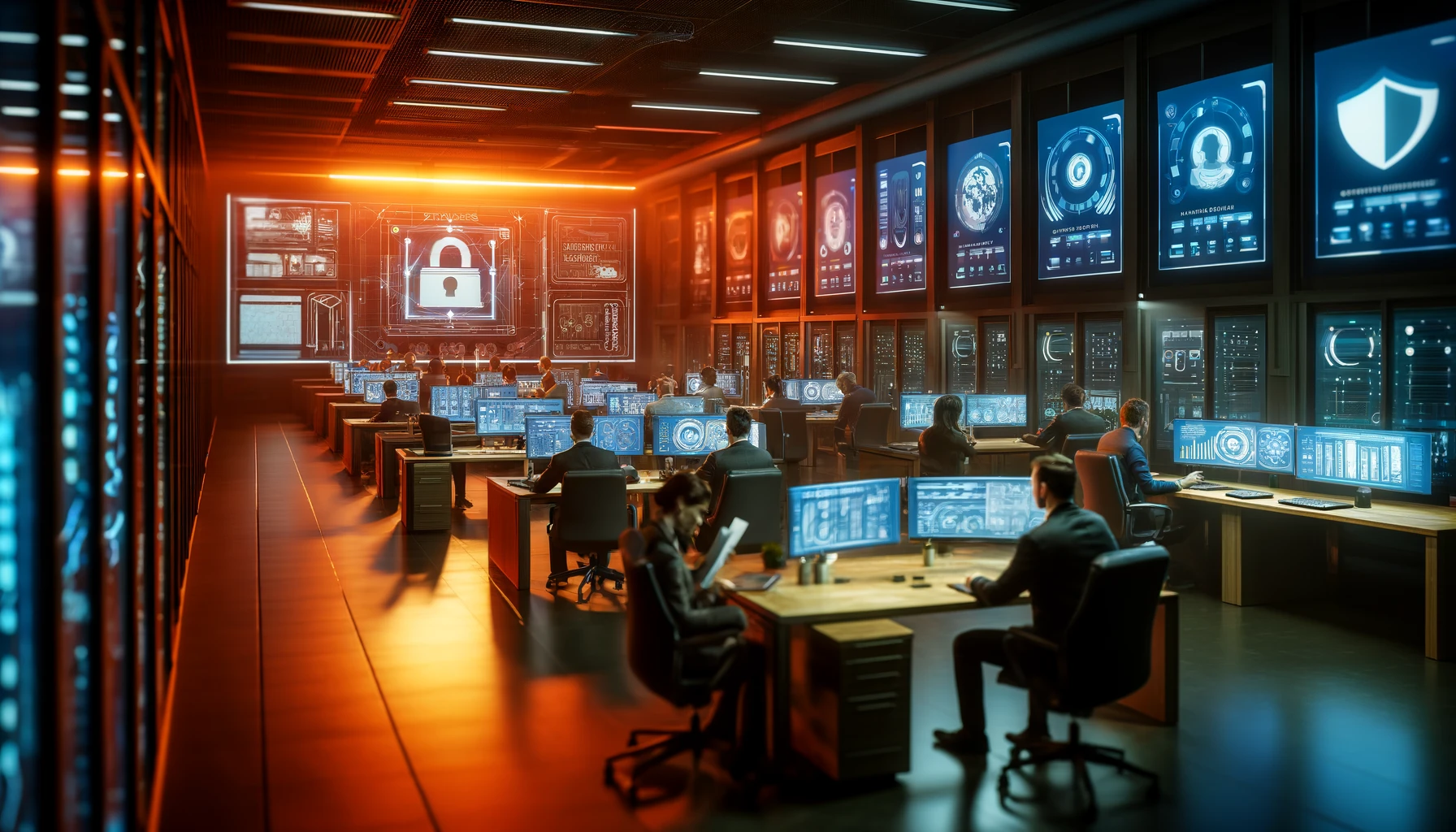3 min read
Cybersecurity 101: Understanding and Safeguarding Online Threats
Cybersecurity: Safeguarding the Digital WorldIntroduction:In an era where our lives are increasingly intertwined with digital technologies, the need...
2 min read
 The Amazing Team at Force One
:
May 9, 2024 9:30:00 AM
The Amazing Team at Force One
:
May 9, 2024 9:30:00 AM
Cybersecurity Courses: Safeguarding the Digital Frontier
In the constantly evolving digital landscape, the need for robust cybersecurity measures has become more critical than ever. With cyber threats becoming increasingly sophisticated, individuals and organizations must equip themselves with the knowledge and skills necessary to defend against potential attacks. Cybersecurity courses offer a comprehensive education that addresses this growing concern. This article explores the definition, history, importance, current trends, challenges, solutions, and future prospects of cybersecurity courses.
To begin, let us define cybersecurity. It refers to the protection of electronic devices, systems, and networks from unauthorized access, data breaches, and other cyber threats. It encompasses methods and technologies designed to ensure confidentiality, integrity, and availability of digital information. Cybersecurity courses are educational programs that provide individuals with the skills and knowledge required to protect and secure computer networks and digital assets.
The history of cybersecurity can be traced back to the 1970s when the proliferation of computers and networks led to the discovery of vulnerabilities that cybercriminals could exploit. As the digital landscape expanded, so did the need for cybersecurity professionals. Initially, cybersecurity training was primarily focused on technical skills, such as network security and cryptography. However, with the constantly evolving nature of cyber threats, the required skill set has expanded to include incident response, risk assessment, and ethical hacking.
The importance of cybersecurity courses cannot be overstated. As technology continues to advance, it also presents new opportunities for cybercriminals. The consequences of a successful cyber attack can be devastating, ranging from financial loss and intellectual property theft to endangerment of national security. Cybersecurity courses equip individuals with the expertise to identify, mitigate, and respond to these threats.
In recent years, there have been several noteworthy trends in the field of cybersecurity. One such trend is the rise of artificial intelligence (AI) and machine learning (ML) in cybersecurity. AI and ML can help identify patterns and anomalies in network traffic, enabling early detection of potential threats. Additionally, there is an increasing focus on cloud security, as more organizations move their data and operations to the cloud. Consequently, cybersecurity courses now emphasize cloud security and best practices.
However, along with these trends come unique challenges. The first challenge is the shortage of skilled cybersecurity professionals. According to a report by (ISC)? the world is facing a shortfall of almost 3 million cybersecurity professionals. This shortage is due to a lack of awareness, limited access to quality cybersecurity education, and the rapidly expanding nature of cyber threats. Another challenge is the constant evolution of cyber threats, which necessitates adaptive and up-to-date training programs.
To address these challenges, various solutions are being implemented. Firstly, governments and organizations are investing in initiatives to bridge the skill gap by promoting cybersecurity education and training programs. Scholarships, internships, and mentoring programs are being introduced to attract more individuals to the field. Secondly, universities and training institutes have been collaborating with industry experts to design and deliver comprehensive and up-to-date cybersecurity courses. By combining theoretical knowledge with practical application, these courses provide students with a holistic understanding of cybersecurity practices.
Looking ahead, the future prospects of cybersecurity courses appear promising. As technology continues to advance, the demand for cybersecurity professionals will only increase. Emerging technologies, such as the Internet of Things (IoT) and 5G, will require specialized cybersecurity expertise. Therefore, cybersecurity courses will need to evolve to cover new areas of knowledge and incorporate the latest best practices. Furthermore, the growing awareness of cyber threats among individuals and organizations will also contribute to the continued demand for cybersecurity education.
In conclusion, cybersecurity courses play a crucial role in protecting the digital frontier. As the digital landscape expands, so does the need for well-trained professionals who can defend against cyber threats. By providing individuals with the necessary skills and knowledge, these courses empower them to safeguard our digital world. The history, importance, current trends, challenges, solutions, and future prospects of cybersecurity courses discussed in this article underline the significance of comprehensive and up-to-date education in this field. With ongoing research, development, and collaboration, cybersecurity courses will continue to equip individuals with the expertise to stay one step ahead of cybercriminals.

3 min read
Cybersecurity: Safeguarding the Digital WorldIntroduction:In an era where our lives are increasingly intertwined with digital technologies, the need...

3 min read
With the increasing frequency and sophistication of cyber threats, protecting your digital assets and sensitive information is more important than...

3 min read
Cybersecurity Engineer: Defining the Guardian of Digital FrontiersIntroductionIn an increasingly interconnected world, where digital threats loom...